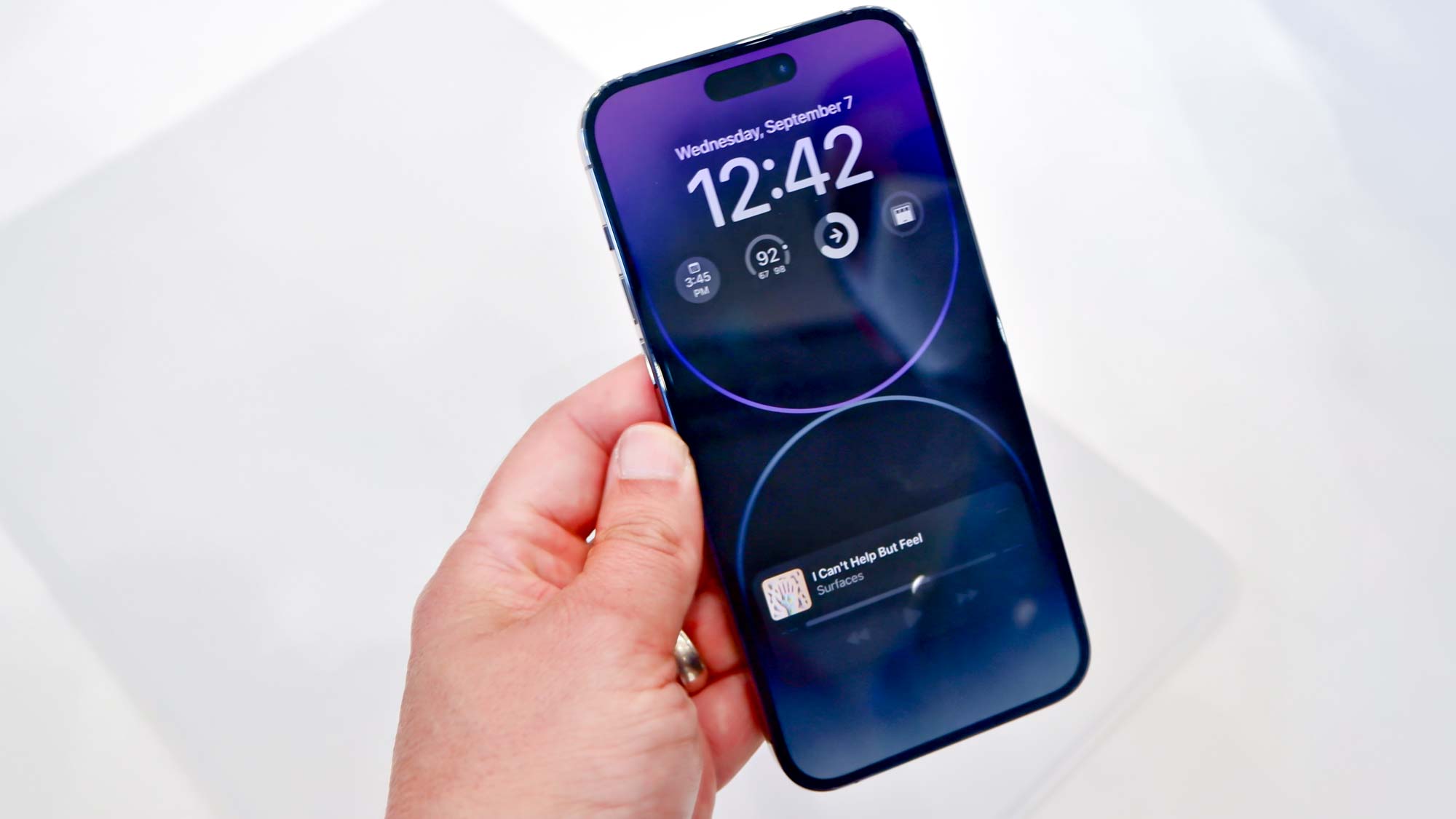Forget the early benchmarks — the iPhone 14 Pro will be a powerhouse
Early iPhone 14 Pro benchmarks are weird, but don’t sweat the numbers

Early benchmarks results for the iPhone 14 Pro’s A16 Bionic chip have popped up on Geekbench, revealing a score that might be disappointing to some.
As flagged by MacRumors, the Geekbench 5 listing for “iPhone15,3” is the identifier for the iPhone 14 Pro, which comes with Apple’s new mobile system-on-a-chip. But despite all the touted performance benefits, the results kicked out by the slice of silicon was a single-core score of 1,879 and a multi-core score of 4,664.
In our iPhone 13 Pro review we saw the A15 Bionic deliver a single-core score of 1,733 and a multi-core score of 4,718. As such, the iPhone 14 Pro looks only marginally faster in single-core performance and slower in multi-core speeds; rather odd.
Now, one has to give room for error here, with benchmarks potentially deviating by tens of points each time the test is run. But these early A16 Bionic scores would indicate that the chip might not offer a noticeable upgrade over the iPhone 13 Pro. However, it’s time for some big caveats.
First off, the iPhone 14 Pro isn't out yet and there may still be optimizations to be done on the software side to really access the A16 Bionic's full power. Secondly, Geekbench scores aren't a true indicator of real-world performance, and we’d be fairly confident that when it comes to, say, gaming or video rendering on the go, the A16 Bionic will outperform its predecessor.
Thirdly, the A15 Bionic is no slouch and trounces pretty much every other mobile chip, so if you’ve preordered an iPhone 14 Pro, we don’t feel you’ll need to worry about performance.
And fourthly, the A16 Bionic’s upgrades are seemingly more focused around the Neural Engine and powering the new Dynamic Island display cut-out. The A16 also enables the CPU, GPU, Neural Engine and image signal processor to better work together to support the new camera hardware, performing up to 4 trillion operations per photo and tapping into the new Photonic Engine; all of which promise to add up for some impressive smartphone photography.
Get instant access to breaking news, the hottest reviews, great deals and helpful tips.
So in short, don't sweat the numbers in this early benchmark as they almost certainly don’t tell the whole performance story for the iPhone 14 Pro. With upgrades such as a new display and 48MP camera, there’s plenty more to be excited about with Apple’s newly revealed Pro phones; check out our iPhone 14 Pro Max hands-on review for some initial impressions.

Roland Moore-Colyer a Managing Editor at Tom’s Guide with a focus on news, features and opinion articles. He often writes about gaming, phones, laptops and other bits of hardware; he’s also got an interest in cars. When not at his desk Roland can be found wandering around London, often with a look of curiosity on his face.
 Club Benefits
Club Benefits





